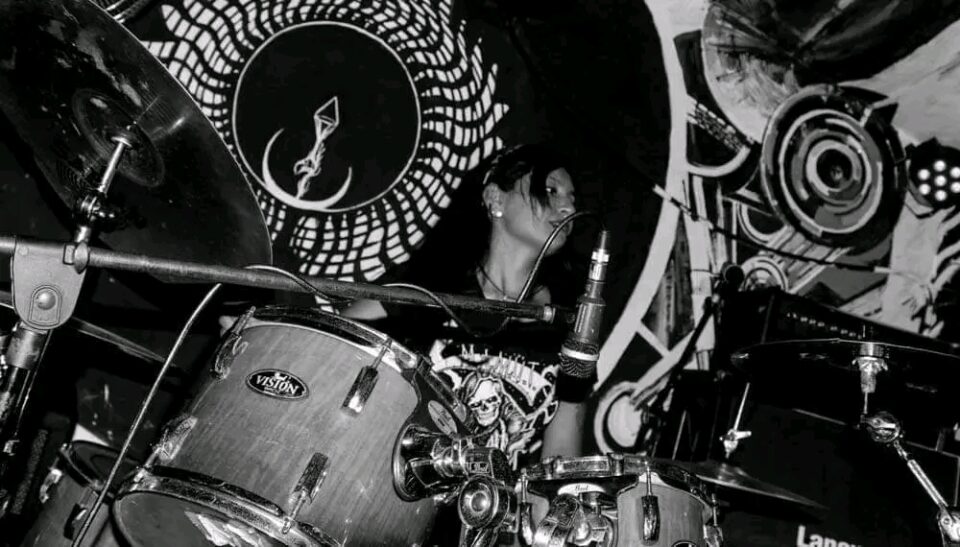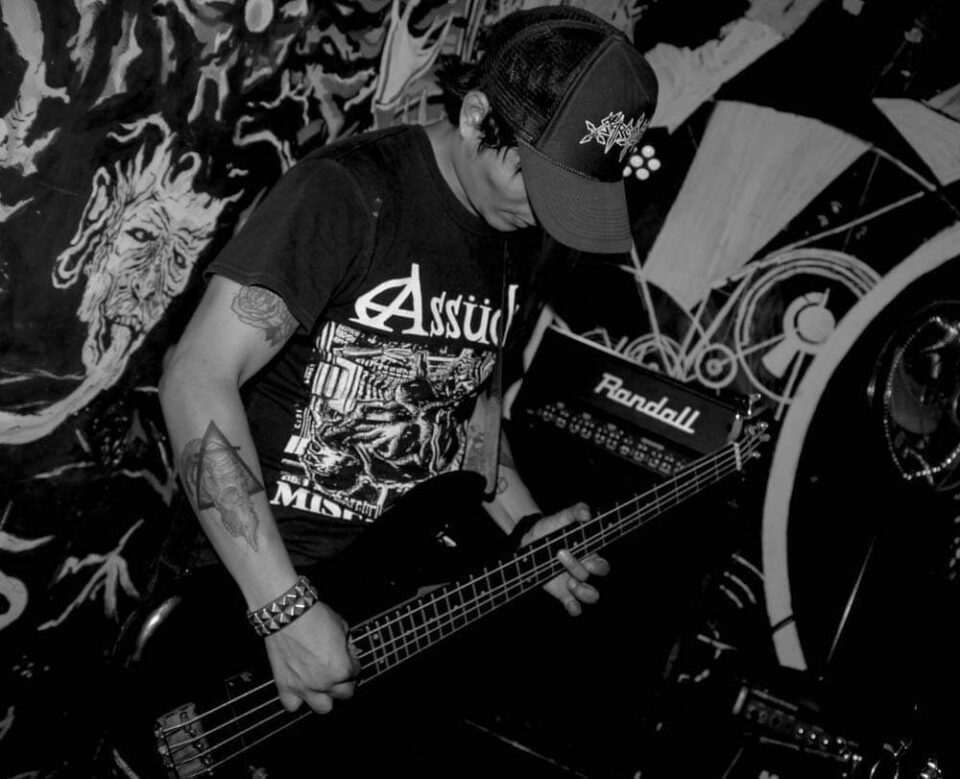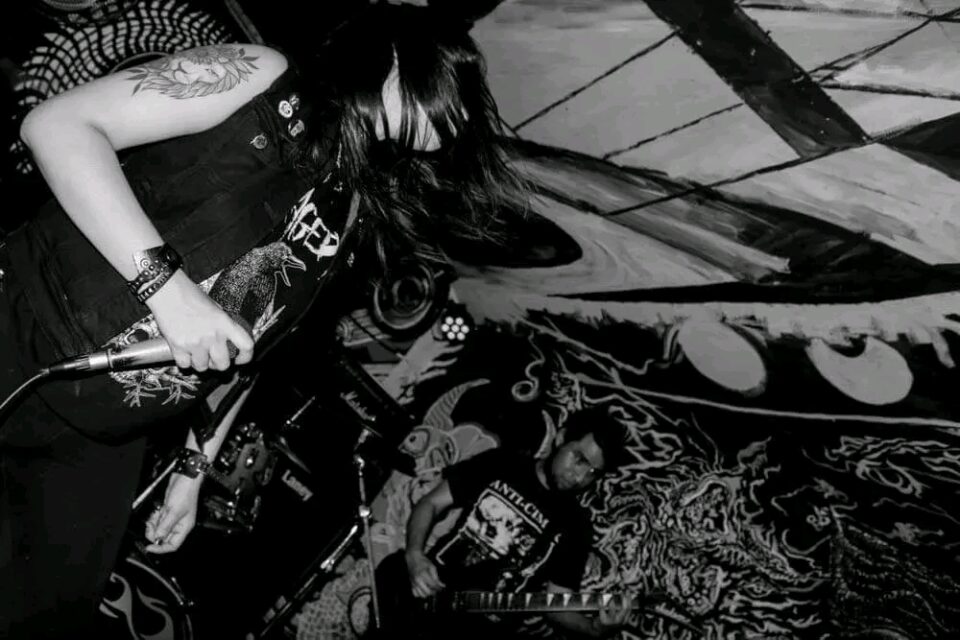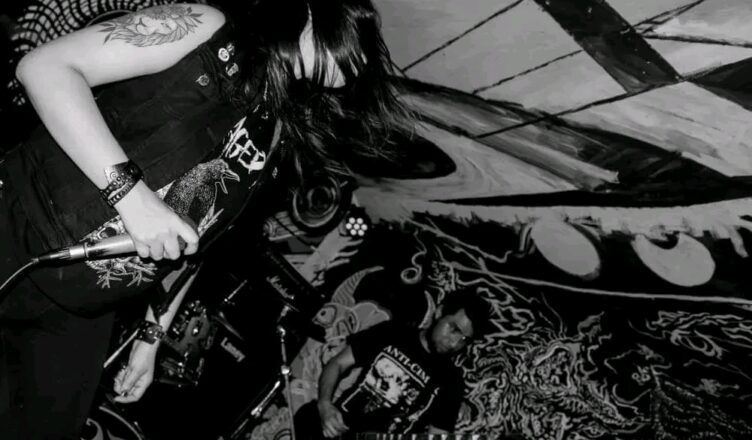Some time ago I came across a split titled “Metal Punk Awqaq” between two Peruvian bands I had never heard of before: Nous DMT and Humanicidio. Authors of a metallic and apocalyptic crust punk rooted deep in the primordial British sounds of the 80s, Humanicidio are the protagonists of this interview in which we talked about different topics, from what it means for them to play punk in 2023 to touching on social, political and personal issues that have influenced their music. If you want to know more, including about the current Peruvian punk and diy scene, don’t waste your time and read Humanicidio’s words!

Hello boys and girls, welcome to Sound Disaster. Would you like to start the interview by giving us some biographical notes about your band? Most importantly, what does Humanicidio mean and how did you come up with this name?
Hi, thanks for the interest, well, in 2015, we got together with friends with the desire to want to make a band with influences that we had in common, each one of us had already been playing in different bands, just tupa tupa and d-beat sounded a lot, but we wanted to play something much more louder , more crust, and that translate lyrics about the harsh reality that we live daily local and worldwide.
Humanicide for us means the fusion of “suicide of humanity”, the human with his own acts is committing suicide, contributing to climate change, the extinction of some animals, destroying the planet… we actually play crust punk,with some influences from another genres.
You play heavily metallic crust punk, how did you approach these sounds and what are the bands that have most influenced your sound?
As we mentioned earlier,we like this genre because, the crust has harsher lyrics about reality, guttural vocals accompanied by heavy guitar riffs, and punchy drums. the bands that inspired us range between crust, trhash, punk metal, stench, dbeat. Like: sacrilege, after the bombs, tragedy, kontatto, agnosy, nocturnal scum, last legion alive, misantropic, framtid, effigy, disclose…
Punk (and crust specifically) have always been generes connoted very politically in an anarchic and anti-authoritarian sense and protest music. What does it mean for you to play crust in 2023? Do you think that punk can still be a genere today that can stir consciences and create real change?
For us, of course, it is a way of expressing protest and our feelings towards the various forms of abuse and misery to which we are subjected every day. This is the style we like, which is consistent with our ideas of autonomy, self-criticism, Solidarity and mutual support, that’s what punk is about for us beyond just making noise and shouting. And we will remain attached to it, and in what we can we will try to take action in what we consider necessary, for example we usually participate, support, or organize activities or concerts that may also have a charitable purpose for someone in need, perhaps for some reason for illness or accident, or for people with low economic resources, the support is not only among punks.

What local and global socio-political events and ideas influence your texts? What do you want to convey with the texts you write?
For example: we have a song titled “borders” which is based on the shameful and miserable act that former President Trump did, separating children from their immigrant parents in the US. which caused us indignation and hatred. Also in our song “winter” we talk about the cold in Peru, but especially how it affects people who live in the high Andean areas or in the hills of Lima. Who live in precarious houses with leaks, without warm clothing or adequate shoes and must be exposed to intense cold that can often kill their animals, their crops and also cause respiratory diseases in young children, and the government recently or nothing to share and solve this problem. We want to share with the whole world our feelings, our rejection of these situations, and express our cry for help for the harmed people. .
I personally know little about the Peruvian underground and diy punk and hardcore scene, except for a few historical nods to the so-called Subterranean Rock. Would you like to tell us something about the current punk scene in your city (Lima) and more generally in Peru? What are the most active at the level of bands, collectives, squats, etc.?
well, although before there were anarchopunk bands and spaces, even squatters, groups that activated various areas of Lima mainly, with conferences and activities, concerts, talks, projection of documentaries, publication of fanzines, anarchist newspapers. beyond just a simple concert to play and have fun. But in recent years, that declined. many people dispersed and some migrated to other places. There are still concerts, bands tour Latin America and Peru, you can see that a lot. but, currently there are few spaces for learning and true sharing, Cajamarca comes to mind where the second punk meeting is being organized, with workshops, conversations, where children and adults can live together, and in Lima is the Manuel Gonzales Prada social center which is an anarocupunk space, there is a library, bookstore, anarchist newspaper library, where film meetings, books and anarchist training workshops are held. Currently there are no squatters as it is very difficult to stay in one place unless the original owners or the state legally intervene.
In 2019 you released a split entitled “Metal Punk Awqaq” with Nous DMT, a band that defines itself as tribal crust punk. On this blog last year I interviewed the Native Punks collective active in the Guatemalan punk scene, so I wanted to ask you what is your relationship with your indigenous identities within the Peruvian scene? And how important do you think it can be to reappropriate a genre like punk from a decolonial perspective and to reaffirm your native culture?
We respect and value the indigenous groups that maintain their own organization, culture, and language. Many have been displaced and dominated, but there are still communities that remain autonomous to this day. We did the split with the band NOUS DMT, because we found their music and lyrics interesting, we chose the name that means “punk metal warrior”, since it reflects the constant struggle we live against the established as that of a warrior of a tribe against the oppressors , but the NOUS DMT band was the one that was directly linked to the MOCHICA culture (Muchik language), and was in constant study of its native roots. but nowadays they are no longer active
Connected directly with the previous question, what are the biggest difficulties you have found or currently find in being and playing this kind of music in your neck of the woods?
About what we do.We havent had any problem to develop within the concerts,however we believe that some genres predominate more than others for the public, such as punk rock, punk or even d-beat , crust and variants such as neo crust are not very played.

Politically, economically, and socially, what have been the events that have happened in Peru in recent years that have touched you most from a political and personal standpoint? How is the situation of social and protest movements and how strong is the state repression against them?
They have been presented as in many countries the protest of the people against corruption, which is something quite deep-rooted in our country. As a result of them, there have been many deaths by people of different ages and in different regions, since the protests have been decentralized, not They have only occurred in the capital, we have had a change of presidency up to 3 times, so this has led people to rise up against the government. there have been demonstrations against and in favor of the change of government on those occasions, but the disapproval has been massive.
Police repression, as always, abusing power has triggered on many occasions, which is why there have been a large number of losses; deaths, shots fired on purpose and head-on against the demonstrators, endorsed by government policies, not only was there police repression in the last demonstration, but there was also military intervention, this is very strong in Peru.
In your lyrics I notice two very obvious dimensions, a more political and protesting one and a more apocalyptic and disillusioned one. How do you think these two dimensions can coexist and feed off each other?
Yes, for us to make noise is to express our rejection against religion, world order, wars, borders, different forms of world control of domination, on the one hand we feel the need to protest against these facts, on the other hand we also think that there is no way out and we believe that in some distant moment nature will die little by little darkness will come but instead we scream due to the need to continue fighting, we say it in our presentations, which is why the lyrics talk about everything a little. We believe in personal changes and we are clear that we will not change the world with our songs, but with small personal and collective actions some things can be done.
To conclude the interview I wanted to ask what are the plans for your future, are you already working on a new album?
Yes, we are releasing new songs and we will record them soon, to be able to release a new album, if possible this year, we also want to travel outside the country to learn about other cultures, share with other compas, for the moment we have a mini tour of Chile in October This year, next year it will be seen…
Final space completely at your disposal, write and add whatever you think is valid and interesting. Thanks again Humanicidio, long live crust punk!
We want to thank you again for your interest in learning about our band and what we think, we hope one day to meet in person. If you want to contact the band for any other interview, edition or distribution of our material, concert, etc, you can find us on facebook, instagram or youtube as: humanicidio crust punk, also on bandcamp as: humanicidiocrust.bandcamp.com. Cheers!!!


